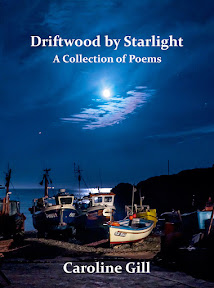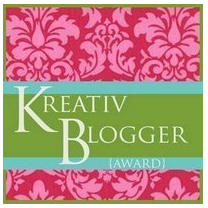For those of you who have been following my mini-series on A City Waking Up by Sue Wallace-Shaddad, here is the continuation of my Q&A with Sue, constituting the third and final post of this mini-series. Subjects addressed include the collection and assimilation of material and the route to publication. Do read on.
If you missed Post 1, you can read it here.
If you missed Post 2, you can read it here.
*
It would be helpful to know something about your approach in terms of assimilating and incorporating biographical and autobiographical material. I wonder, do you keep a diary? The ‘I’, of course, is always of interest to poets.
I used to keep diaries in my teens and as a student, which might make a good source of inspiration if I dare re-read them! Recently, following advice on the Newcastle MA summer school, last year, I started keeping a journal but I have to say I have not as yet used that to inform my writing. I do make notes or even draft short poems on my iPhone quite often when out for walks during lockdown. Mainly I write from memory, in the moment. Of course, sometimes I research information to flesh out my ideas, usually doing a google search.
I have much appreciated your evocations of place and situation; when it comes to the crafting of your poems, what aspects are important to you?
Most of the poems were written in situ in Khartoum so I was surrounded by my experience, the colours, sound, smell, taste and sight. I would read some of the poems out to family as I wrote them. I was concerned that the poems should be accurate and always checked with family members about my use of Arabic. The visual is very important to me, having a heritage of painters in my family. I like to say I am painting with words. When I first wrote the poems, I was not experienced in making decisions about stanza length and form. The final shape of several poems was crafted only just before submission and even after that in one case, thanks to my very helpful publisher Janice Dempsey. I use rhyme from time to time and that comes naturally as I write, so I also included a few poems with rhyme.
More generally I would say that I like to be succinct in my poems so the words need to carry a lot of heft, emotionally and visually. I have become much more aware of how assonance and internal rhyme contribute to poems; some of that is instinctive but once I have seen a pattern I develop that further.
How did you go about finding a publisher and what have you learned about the road to poetry publication?
I knew that Dempsey and Windle had published ‘Sprouts’ by Alexandra Davis in 2017 – Alex and I had previously done a course together with Rebecca Goss. Alex had had a good publishing experience. Derek Adams, a fellow committee member of Suffolk Poetry Society also had his pamphlet ‘Exposure’ published by them in 2019. So I thought I might be in good company if I got published! I had submitted a single poem to their annual competition which was commended and published in their 2020 anthology, which was encouraging. I had also chatted to Janice Dempsey at the Poetry Fair in London so I knew a bit about the publisher. I was not sure that my subject matter, Sudan, would necessarily be of interest but decided to submit to their submission window without any expectation. I was delighted to be accepted and have my short collection ‘A City Waking Up’ published only months later on National Poetry Day 2020.
I have submitted pamphlets in the past to other publishers but looking back, I can see that I was doing this too early. The poems were not cooked enough and the arc of the pamphlet was not in place. I am hoping that new submissions will be stronger with my greater experience. It is definitely good to get to know the editors which might be by going to readings they organise, doing poetry reviews, noticing who gets published by which publisher, keeping up with Twitter etc. My first publication ‘A Working Life’ was in fact self-published in 2014, another route, which I may still go down again, particularly when it comes to an ekphrastic set of poems which would benefit from the images alongside.
You wear several proverbial hats, including the one assigned to the Secretary of Suffolk Poetry Society. How do you go about fitting the writing and editing of your own poems into your schedule? Do you draft in a particular pen or notebook, or have a particular working space and routine?
I don’t have a routine as such, but tend to have more time to write towards the end of the week and at weekends. My poems get edited at my computer which is by a French window looking out in to garden and park, so I enjoy that light and space. It helps if I have a complete morning or day free of other commitments. Some days I will be doing organisational matters, other days writing poetry reviews so it is always good to then spend time on my own poetry.
I partly decided to do the MA in Writing Poetry to help me structure both my reading and writing. Now that is finished, I am not quite settled into a structure. I often read poetry as I walk. I find movement helpful and we are not on trains much at present! Doing submissions gives me deadlines which can help write new poems and improve older ones. I also take part every year in the national poetry writing month in April and that creates a discipline – I am trying to write a poem every morning.
I always write very quickly, usually in a spiral ‘Reporter's Notebook’ and then start the editing process as I transfer the text to the computer. I leave the poem for some time before returning to see what needs reworking. I like to use a ‘Papermate’ ballpoint pen as it is very free flowing and suits my style of quick writing.
 |
| Sue Wallace-Shaddad |
I would like to express my gratitude to Sue for sharing so much information in these posts about the creative process, and about the writing of A City Waking Up, in particular. Thank you, Sue!
*
A City Waking Up was published last year by Dempsey & Windle.
The book costs £8.00 and can be purchased here by PayPal (UK) or by contacting the poet (international and other orders).
Sue's website can be found here.











